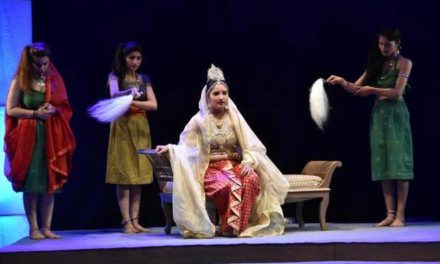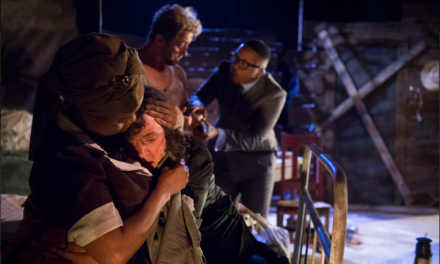The Chennai production promises a commentary on a war that is as relevant it was in 415 BC when Euripides wrote the Greek tragedy.
“The child of my dead son is being taken / To be killed / A life being snatched before it could be brave / Why? For what sin / How can there be nothing I can do?”
The lament of Hecuba in Euripides’ The Trojan Women resonates as powerfully today as it did around 415 BC when the tragedy was written. That’s a terrifying commentary both on how cruelty remains a defining pattern of the human condition, and how great works of art stay relevant over millennia.
Theatre Nisha’s current revival of the famous Greek tragedy sees Meera Sitaraman making a debut as director of her first full-length play. She is particularly qualified to tackle the powerful work, given that she has studied the politics of war for her Master’s. She observes, “We are constantly living in times of war, and the aftermath of it hasn’t changed much with evolving civilizations.”
Keeping to the script
Euripides’ play, written during the Peloponnesian War, focuses on four women who are tragic survivors of the Trojan war — Hecuba, wife of King Priam of Troy; her daughter Cassandra; Andromache, the wife of Hector; and Helen, who was abducted by Paris, Prince of Troy. We follow their stories as they wait to be informed of the further sorrows that await them at the hands of their Greek vanquishers. The production retains its original context and is not Indian-ised in any way. Sitaraman explains that names are irrelevant; “the conflict of the play is what matters the most here”.
What she has, however, chosen to do, is make the play very physical, drawing from contemporary dance and devarattam, the folk dance form that was once performed by victorious kings and warriors. The play’s musical score will be performed live by the actors, with instrumental support from Vishwa Bharath. We discuss the two-month rehearsal process of this play, that looks so deeply into the nature of death, loss and its consequences. Sitaraman shares that it was a very explorative process that studied “cultural references of screams, ritualistic mourning, guttural cries, and movements associated with death rituals across the world”. And so the timeless power of Greek tragedy lies in its ability to show us the nature of humanity, and how the dramas that we play out in real life constantly repeat themselves.
The Trojan Women was staged from April 26 to 28, at the Alliance Française of Madras.
This article was originally posted on April 19 on The Hindu and has been reposted with permission.
This post was written by the author in their personal capacity.The opinions expressed in this article are the author’s own and do not reflect the view of The Theatre Times, their staff or collaborators.
This post was written by Parvathi Nayar.
The views expressed here belong to the author and do not necessarily reflect our views and opinions.

















